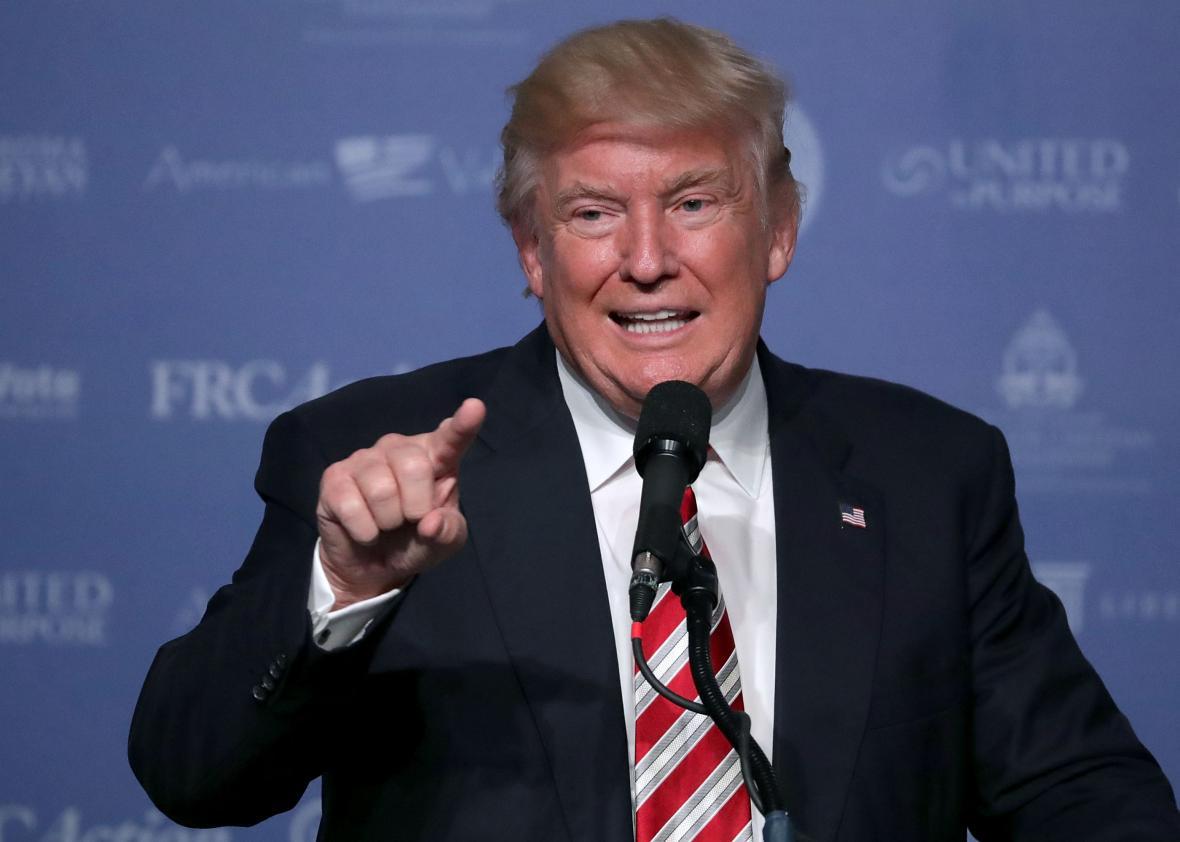Donald Trump has been working diligently to portray himself as the less interventionist candidate in the general election. It builds conveniently off of his oft-repeated lie that he opposed the Iraq war and intervention in Libya. Positioning himself as the lesser-interventionist candidate has sent some neoconservatives flocking towards Clinton. And the general impression that Clinton is more interventionist by nature has been a nearly 15-year source of concern among the left.
Like all issues where Trump is supposed to be to Clinton’s “left,” this notion that he is to the left of her when it comes to international conflicts is based on the idea that Trump actually has policy convictions that guide him regardless of whether new political opportunities arise. Trump was interventionist ahead of the Iraq war, then he was anti-interventionist once the war turned south; he was interventionist ahead of the Libya intervention, then anti-interventionist once that went south. Putting on an anti-interventionist face was useful to Trump so long as it was in some way the opposite of the face Clinton put forward.
Clinton has never been as interventionist as her caricature presumes, and Trump never as anti-interventionist. Trump, you’ll recall, is the one who’s giddily fantasized about “bombing the shit out of ISIS” throughout his campaign. But when Clinton, during Wednesday night’s MSNBC town hall, pledged not to send ground troops to Syria or Iraq—“We are not putting ground troops into Iraq ever again. And we’re not putting ground troops into Syria. We’re going to defeat ISIS without committing American ground troops”—Trump must have recognized that some hawkish turf was available for occupation.
“She tells [ISIS] already, ‘there will be no boots on the ground!’ ” Trump said in his Friday speech at the Values Voter Summit. “Now even if you don’t want boots on the ground, you don’t want to say it. Don’t say it! And now they are saying, ‘Oh, I hope she wins!’ Oh, would they dream of having her as president.”
Like much of Trump’s speech, this point did not appear in the prepared text. It was, however, one that Trump’s surrogate, Rudy Giuliani, first made onstage at the VVS a few minutes earlier. “What [Clinton] said the other night, ruling out putting troops on the ground … that is such a sign of weakness,” he said. “The thing we hear most often from the president—no boots on the ground, no boots on the ground—at least leave the door open as a possibility to fight your enemy!”
What you have now is one candidate in Clinton, the supposed wild-eyed nation-building interventionist, who has pledged not to send ground troops to fight in either Iraq or Syria, and the other in Trump, who pretends to have been against the Iraq war, who’s screaming about how she won’t leave the door open. One doesn’t necessarily need to believe Clinton—she, like Obama, would probably use the “oh, we’re just sending some ‘advisers’ over there” loophole to squeeze in a few thousand ground troops. But a mass deployment would appear to be politically out of the equation barring some major shock to the status quo.
Clinton may not have meant to make that pledge, either, heading into the night. Now that she has, though, it leaves her another option heading into the debates. If Trump goes at her for her support of previous interventions, as he’s likely to do, she doesn’t just have to point out that he supported them too. She can say that only one candidate onstage has ruled out sending troops back to Iraq or into Syria, and it’s not him.
